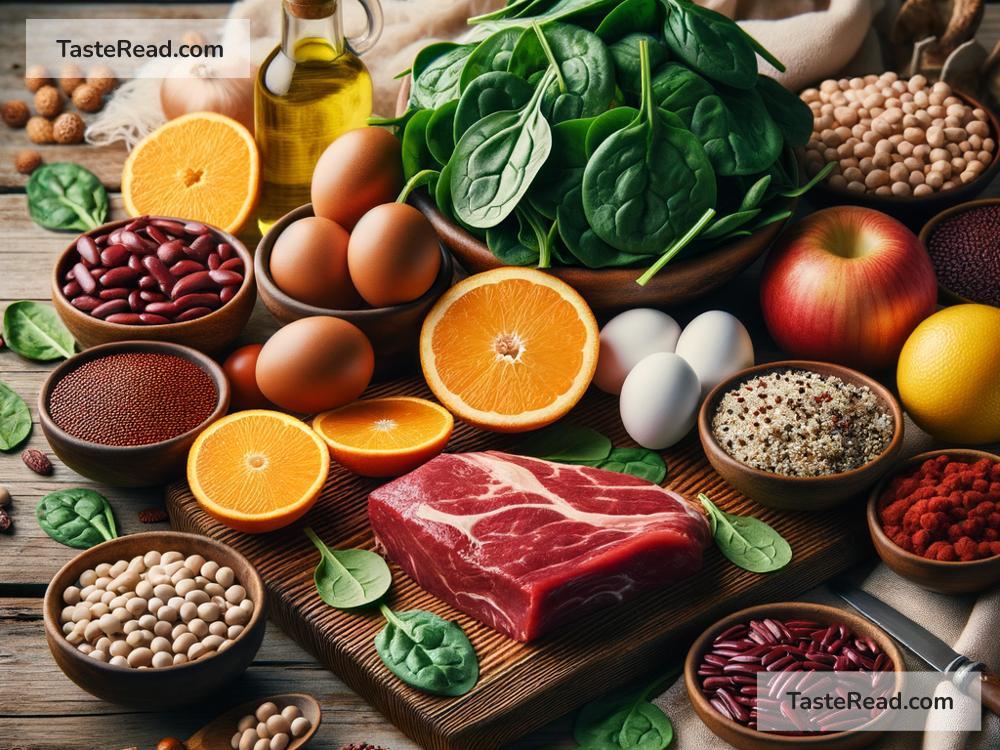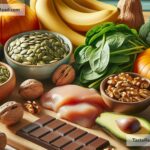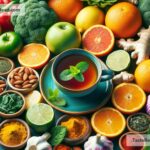Foods That Promote Red Blood Cell Production: Supporting Your Body from Inside Out
Our bodies rely on red blood cells (RBCs) to transport oxygen to every cell, tissue, and organ. Without enough RBCs, we experience fatigue, weakness, or even serious health problems like anemia. Thankfully, what you eat can make a big difference. By focusing on specific nutrients, you can promote red blood cell production naturally and support your overall health.
Why Red Blood Cells Are Important
Red blood cells are the oxygen carriers of your body. They contain hemoglobin, a protein that holds onto oxygen molecules and delivers them to different parts of the body. To make red blood cells, your body needs nutrients like iron, vitamin B12, folate, and protein. Without these nutrients, your RBC production slows down, and you may feel tired or unhealthy.
The good news? Many foods are packed with the nutrients needed for healthy RBC production. Let’s explore the best options to keep your blood healthy and strong.
Iron-Rich Foods: The Foundation of RBCs
Iron is a critical mineral for red blood cells, as it helps form hemoglobin. If you don’t have enough iron, your body struggles to make RBCs, leading to conditions like iron-deficiency anemia.
Best Iron-Rich Foods:
– Red Meat: Beef, lamb, and liver are excellent sources of iron, especially “heme iron,” which your body absorbs better than plant-based iron.
– Poultry and Fish: Chicken, turkey, and fish (like salmon or tuna) are also good sources of heme iron.
– Plant-Based Options: Beans, lentils, spinach, tofu, and fortified cereals provide “non-heme iron,” which can be less absorbable but still important. Pair it with vitamin C to boost absorption.
Vitamin B12: The Blood Builder
Vitamin B12 is essential for the production of healthy RBCs. Without enough B12, your body may struggle to make fully-formed, functional red blood cells, leading to anemia. Deficiency is especially common in vegetarians, vegans, and older adults.
Best B12 Sources:
– Animal-Based Foods: Eggs, dairy products (like milk and cheese), meat, fish, and poultry are rich in B12.
– Fortified Foods: Many plant-based milks, cereals, and nutritional yeast are fortified with B12 for those who don’t eat animal products.
– Supplements: If you’re vegan or have low B12 levels, your doctor may recommend taking a supplement.
Folate (Vitamin B9): Feeding Healthy RBC Formation
Folate, also known as vitamin B9, helps your body produce DNA and RNA, which are essential for forming new red blood cells. Without enough folate, you might experience fatigue or anemia.
Best Folate-Rich Foods:
– Leafy Greens: Spinach, kale, romaine lettuce, and collard greens are folate powerhouses.
– Citrus Fruits: Oranges, grapefruits, and lemons contain folate.
– Legumes: Lentils, chickpeas, and black beans are wonderful plant-based sources.
– Fortified Foods: Many breads, cereals, and pastas are enriched with folic acid (synthetic folate).
Foods Rich in Vitamin C: Boost Iron Absorption
Vitamin C doesn’t directly create red blood cells, but it plays an important role by helping your body absorb iron more effectively. Adding vitamin C-rich foods to iron-containing meals can make a big difference.
Best Vitamin C Sources:
– Fruits: Oranges, strawberries, kiwis, pineapples, and papayas.
– Vegetables: Bell peppers, broccoli, tomatoes, and potatoes.
For example, try adding some fresh orange slices to a spinach salad to maximize iron absorption!
Copper and Vitamin A: Supporting RBC Health
Copper and vitamin A don’t get as much attention as iron or B12, but they’re still essential for RBC production and function. Copper helps your body use iron efficiently, while vitamin A supports bone marrow where RBCs are made.
Copper-Rich Foods:
– Nuts and seeds (like cashews and sunflower seeds), shellfish, and whole grains.
Vitamin A-Rich Foods:
– Sweet potatoes, carrots, squash, and leafy greens are full of vitamin A. Animal-based sources include eggs, milk, and liver.
Protein: The Building Block of Blood
Protein isn’t just important for muscles—it’s essential for red blood cell production. Hemoglobin, the oxygen-carrying molecule in RBCs, is made from protein.
Best Protein Sources:
– Animal Proteins: Lean meats, fish, eggs, and dairy products.
– Plant Proteins: Beans, lentils, nuts, seeds, and tofu.
Drinking Water: Hydration Matters
While water isn’t a food, staying hydrated plays a big role in healthy blood. Dehydration can reduce blood volume and make RBCs less effective at delivering oxygen.
Make sure to drink plenty of water throughout the day—your blood will thank you!
Final Tips for Boosting Red Blood Cells
- Eat Balanced Meals: Include a mix of iron, B12, folate, and vitamin-rich foods at every meal.
- Pair Iron with Vitamin C: Combine spinach with orange slices or lentil curry with tomato salad.
- Limit Inhibitors: Excess coffee and tea can block iron absorption. Enjoy these beverages in moderation.
- Stay Active: Regular exercise supports healthy RBC production.
- Consult a Doctor: If you suspect anemia or a deficiency, talk to your healthcare provider.
Focusing on nutrient-rich foods is one of the easiest and healthiest ways to keep your red blood cells strong. With simple dietary changes, you can feel more energetic, vibrant, and ready to tackle the day! So, load up your plate with these RBC-supporting foods and give your blood a natural boost.


